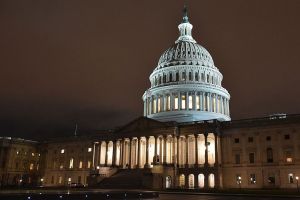Despite this unprecedented antagonism from President Trump’s administration, most Americans, including Republicans, continued to express confidence in the intelligence community.
Key Findings
Since before his inauguration, President Trump vigorously rejected the judgments of the US intelligence community (IC) on Russia’s interference in the 2016 elections and repeatedly attacked these agencies and their former leaders. In 2018, the president accused the IC of spying on his 2016 campaign. The president’s supporters labeled the IC as an anti-democratic “deep state” hostile to the administration.
Despite this unprecedented antagonism from the president, most Americans, including Republicans, continued to express confidence in the IC. Indeed, survey results from summer 2018 show a slight improvement from 2017 in public views of the IC’s effectiveness. While these results will likely reassure IC leaders, they should pay close attention to wide variations that emerge among generational groups, particularly among younger Americans whose attitudes may be malleable but are shaped by formative experiences. Americans in the youngest generational cohort analyzed here (Millennials) are less likely to see the IC as playing a vital role in warning against foreign threats and less likely to say the IC is effective in preventing terrorist attacks.
- Once again, a strong majority of Americans (59%) said the IC plays a vital role in protecting the country, including 60% of Republicans, 68% of Democrats, and 57% of Independents. Larger numbers of Silent Americans (78% of those born between 1928 and 1945) expressed this view in 2018, compared to 67% of Boomers (1946-1964), 58% of Gen X-ers (1965-1980), and only 47% of Millennials (1982-1996)
- An overwhelming majority of Americans considered the intelligence agencies effective in accomplishing their assigned missions with nearly 8 in 10 crediting the IC for preventing terrorist attacks, including 85% of Republicans (up from 75% in 2017) and 78% of Millennials (up from 64% in 2017)
- Only half of Americans (51%) believe the IC effectively safeguards their privacy and civil liberties while pursuing its mission
- Almost all Americans (89%) agreed the IC should use all lawful means to gather intelligence
- The number of Americans that believe our intelligence agencies should respect the rights of foreigners to the same degree as US citizens grew by 15 percentage points from 2017 (38%) to 2018 (53%)
- The overall number of Americans who agreed the IC could share more with the public without compromising its effectiveness increased from 2017 (rising from 54% to 65%), a view shared by nearly 7 in 10 Millennials
- Americans remain divided over which government officials or institutions should be responsible for supervising and overseeing the intelligence agencies
Survey Methodology
From July 24, 2018 to August 1, 2018, UT-Austin fielded a survey through the market research firm YouGov with 1,000 respondents matched demographically to be nationally representative. The margin of error is 3.73 percent. The data analyzed in this paper use survey weights. YouGov interviewed 1,153 respondents who were matched down to a sample of 1,000 to produce the final dataset based on a sampling frame on gender, age, race, education, party identification, ideology, and political affiliation. The recruitment of survey respondents was based a stratified sample from the 2016 US Census American Community survey. For each respondent in the target frame a respondent is selected from the YouGov opt-in panel that most closely matches the characteristics of the ideal sample.


